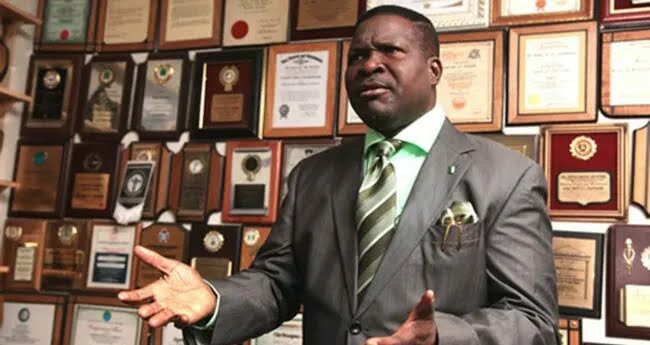VAT: Ozekhome Critiques Tax Dependence Across Nigerian States, Advocates Focus on Production

Senior Advocate of Nigeria, Mike Ozekhome, has openly criticized the state governments of Nigeria for their alleged over-reliance on taxation as a means of fostering development within their jurisdictions.
He underscored the imperative for policies that promote production rather than an undue dependence on tax revenue.
Ozekhome conveyed these sentiments to journalists on Saturday at Mike Ozekhome Chambers in Abuja, as reported by Nairametrics.
Nairametrics had previously noted in November 2024 that the Chairman of the Federal Inland Revenue Service (FIRS), Zacch Adedeji, revealed that the former tax law disproportionately favored approximately three states, which garnered over 70% of the Value Added Tax (VAT), leaving other states with meager allocations.
Adedeji disclosed this during a public hearing on tax reform bills at the House of Representatives in Abuja.
He elucidated that the VAT distribution at that time predominantly benefited Lagos, the FCT, and Rivers states, where the majority of corporate head offices are situated.
Ozekhome’s Perspective
In response to the taxation landscape in Nigeria, the distinguished lawyer highlighted that an excessive reliance on Value Added Tax (VAT) has rendered numerous Nigerian states less competitive and dynamic.
He contended that each state must cultivate productivity to attain substantial development for its inhabitants.
“Which state can you deem exemplary today, apart from having VAT that provides us with effortless revenue? Is VAT genuinely a developmental product? Is that agriculture? I inquire, is VAT agriculture? Is it that you have produced something? You are merely depending on taxation on products from within your vicinity.
“So, to be productive, you must emulate the Asian Tigers, who were lagging behind us in the 1950s and early 1960s,” he remarked.
Ozekhome advocated for investment in infrastructure to invigorate the economy and advised governments to extend “tax incentives” to facilitate corporate prosperity.
“You must invest in science and technology. You must invest in education. You must invest in job creation.
“The government must offer incentives.
“You must ensure security. Without security, no one will venture to the farm. No one will engage in work,” he added.
According to him, Nigeria is navigating without a compass, steering towards an uncertain destination without a focus on production.
He implored both federal and state governments to favor local industries over more formidable foreign competitors.
What You Should Know
In June 2025, President Bola Tinubu enacted four tax reform bills that profoundly influence key facets of Nigeria’s fiscal and revenue framework.
The signing ceremony was held at the Presidential Villa. The four bills encompass the Nigeria Tax Bill, the Nigeria Tax Administration Bill, the Nigeria Revenue Service (Establishment) Bill, and the Joint Revenue Board (Establishment) Bill.
These were ratified by the National Assembly following extensive deliberations with diverse interest groups and stakeholders.
The tax bills incited considerable public discourse and skepticism among various groups and regions within the nation.
In response, comprehensive consultations were conducted to ensure the integration of diverse perspectives into the legislative process.









